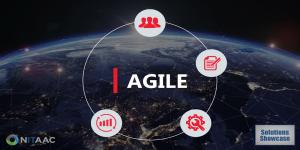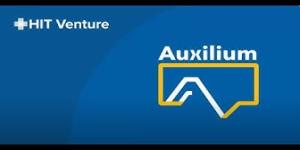Blockchain: Innovations in health data sharing with FDA and Booz Allen
Blockchain is synonymous with cryptocurrencies, but have you thought about how blockchain applies to the healthcare space?
Federal agencies, hospitals and local governments have long struggled with data sharing of encrypted, permissioned health data. With the emergence of blockchain, there’s a huge opportunity to leverage this technology in the event of a flu epidemic, or even a chemical, biological, radiological, or nuclear (CBRN) attack to respond to the emergency and general FDA requirements for safety and patient outcome surveillance.
When the 2007 H1N1 Swine Flu epidemic emerged, it became evident that a new system needed to be put into place. At the time, the Food and Drug Administration (FDA) authorized the emergency use of an experimental drug that had not been fully tested. To get information on the drug, hospitals and other healthcare providers had to rely on a system that was dependent on desktop computer access to disseminate reports.
“This meant that all of us had to read 6,000 reports that were each 11 pages long to get the information needed for drug safety,” said Dr. Skip Francis, director of Data Mining and Informatics Evaluation and Research (DMIER) in the Office of Translational Sciences at FDA’s Center for Drug Evaluation and Research. To remedy this, FDA turned to blockchain to solve its communications problems.
Called the Real-Time Application for Portable Interactive Devices, or RAPID, this cloud-based, customizable blockchain system was designed to protect data safety and patient outcomes. Developed by the DMIER team and Booz Allen, a NITAAC CIO-SP3 contract holder, this blockchain solution facilitated real-time exchange of encrypted, permissioned health data between the agency and partner hospitals.
RAPID Leveraged Ethereum, a blockchain platform that provided the FDA and its collaborators with a mobile phone-based bidirectional communication system. This system provided a 360-degree view of incidences, prevalence, location and clinical outcomes of medical countermeasures used during CBRN and other surveillance situations.
RAPID used blockchain because it allowed for the seamless exchange of information without a central entity controlling or slowing down the dissemination of vital information. “Blockchain provided security, a rapid connection, and the ability to send diverse information to us [FDA] in real-time,” said Dr. Skip Francis.
Blockchain is enhancing the number of sites that are able to collaborate and share information. “It enables information sharing that was simply not previously possible,” said Marek Cyran, Booz Allen senior lead technologist.
Booz Allen is a management and information technology firm that brings bold thinking and a desire to be the best in its work in consulting, analytics, digital solutions, engineering and cybersecurity. Booz Allen has a guiding purpose — to empower people to change the world. Each day, Booz Allen imagines, invents, and delivers new ways to better serve its employees, its clients, and the world.
If you would like to see RAPID in action or learn more about blockchain solutions from Booz Allen, you can reach them through NITAAC. Simply call our Customer Support Center at 1.800.773.6542 or email NITAACsupport@nih.gov and we’ll put you in touch. You can also use our electronic-Government Ordering System (e-GOS) for research or to put through a Request for Information (RFI) on blockchain.

 U.S. Department of Health & Human Services
U.S. Department of Health & Human Services






